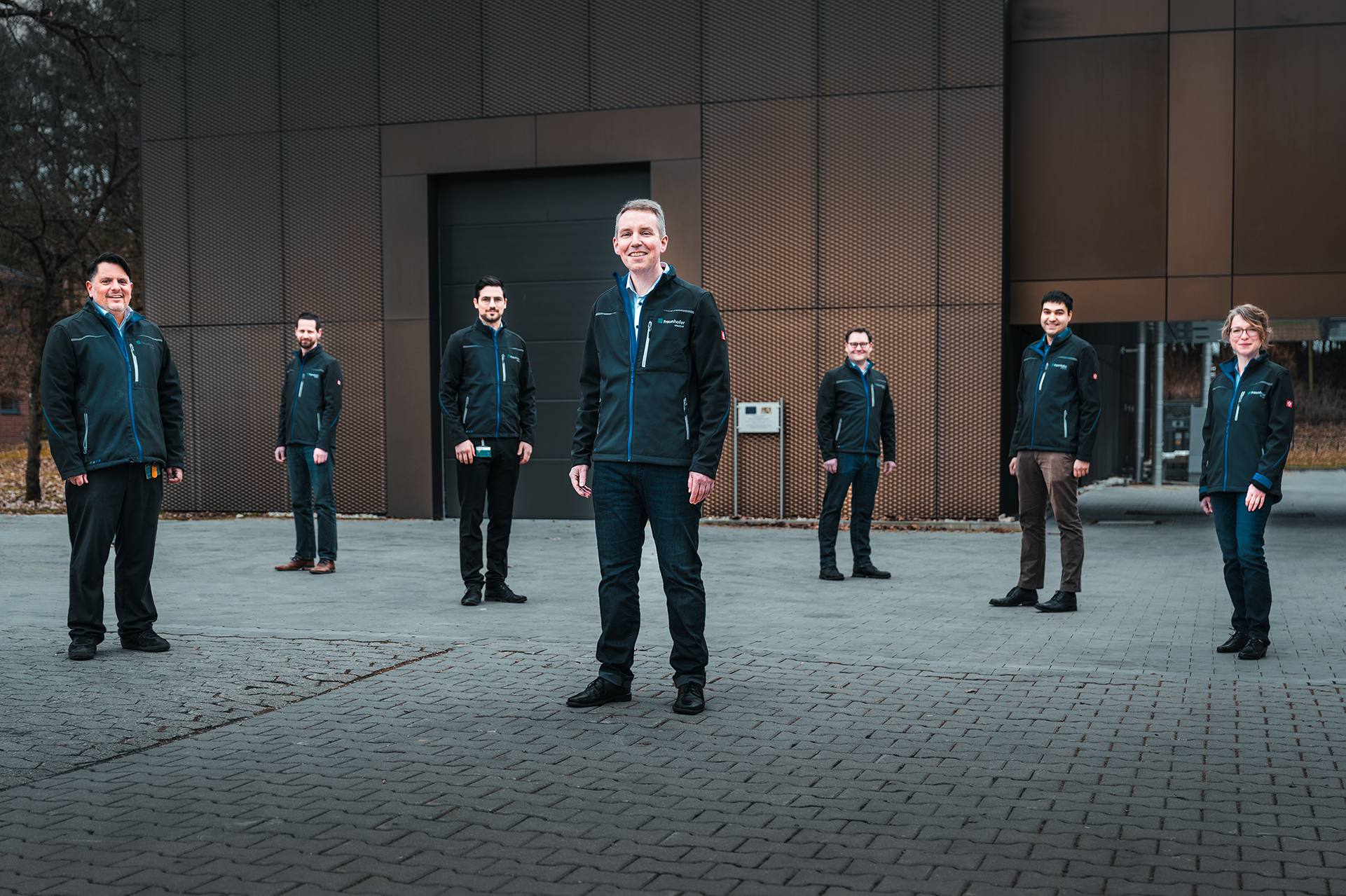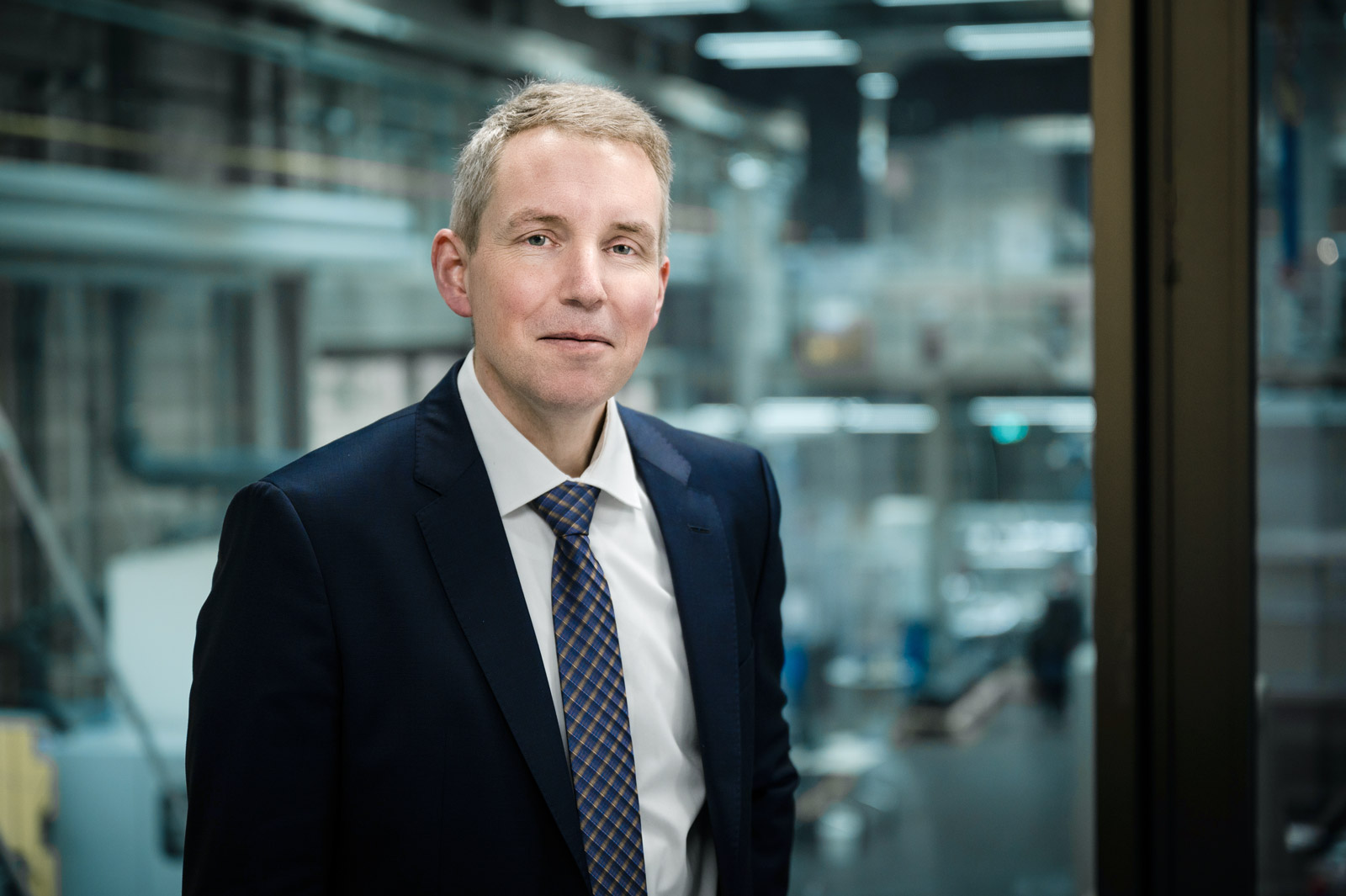Change of leadership
The Sulzbach-Rosenberg branch of the Fraunhofer Institute UMSICHT has a new director. On 1 March, Prof. Dr.-Ing. Matthias Franke took over the leadership role from Prof. Dr. Andreas Hornung. Hornung will remain with the institute section as Senior Expert for Bioeconomy. Samir Binder continues to be the deputy head of the institute section.


Matthias Franke has been working at the Research Institute in Sulzbach-Rosenberg since 2006, when it was still the ATZ Development Centre. He built up the department of recycling management there, which deals with waste and resource management strategies, recycling technologies but also the efficient production of powders for additive manufacturing, among other things. More recent fields of research that Matthias Franke has established at the institute are the chemical recycling of composite materials such as electronic scrap or GRP/CFRP materials, as well as the decontamination of construction waste using thermal processes. Already in 2018, he took over the tasks of deputy director of the institute section together with Samir Binder.
In terms of future orientation, Franke is counting on continuity and even greater interaction between the institute's two research fields, energy technology and the circular economy: »We urgently need technologies for the sustainable use of energy and raw materials. After all, climate protection and CO2 savings are not only decided in the energy sector. Closing material cycles also contributes to this and at the same time stabilises the supply of raw materials to our domestic industries. With our team, we want to find solutions for the success of the energy and raw material turnaround, that is our goal«.
Matthias Franke succeeds Andreas Hornung, who has decided to hand over the management of the institute section for health reasons. He will continue to be available to the site as an internationally renowned expert in thermochemical process engineering, especially in the area of TCR technology, which he developed. Hornung took over the institute branch in 2013 and successfully integrated it into the Fraunhofer Gesellschaft. His research in the field of conversion and utilisation of residual materials, e.g. sewage sludge or used plastics, has contributed significantly to the current profile of the research institution.
Short vita Hon. Prof. Dr.-Ing. Matthias Franke
Matthias Franke was born in Duisburg. He studied at the University of Rostock in the field of agricultural and environmental sciences, where he earned a doctorate in engineering. He holds an honorary professorship at the School of Chemical Engineering at the University of Birmingham and teaches at the School of Life Sciences at the Technical University of Munich in the field of waste management. Franke is active in various national and international committees in the field of Circular Economy. He lives with his family in Sulzbach-Rosenberg.
Fraunhofer UMSICHT Sulzbach-Rosenberg
Since 2012, the research institute in Sulzbach-Rosenberg has been part of the Fraunhofer Institute for Environmental, Safety and Energy Technology UMSICHT based in Oberhausen under the overall management of Prof. Dr. Eckard Weidner. The research facility, which is located in the immediate vicinity of the former Maxhütte steelworks, has existed for more than 30 years.
Originating from Klöckner steel research, a non-university institute developed from 1990 onwards: the Application and Technology Centre for Energy, Process, Environmental and Fluid Technology (ATZ-EVUS). It was founded by the university professors Franz Durst, Hans Bergmann, Karl Brotzmann and Klaus Dietrich Heckmann to give new technological impulses to the then structurally weak Upper Palatinate. The ATZ-EVUS initially concentrated on the fields of metallurgical processes, laser material processing and wastewater technology - often the activities were still directly related to steel production at Maxhütte.
With the transition to the Fraunhofer Gesellschaft in 2012 under the new leadership of Prof. Hornung, two core areas of competence crystallised: energy technology and the recycling management, with the subject areas of fuels from biomass, storage technologies and biomass combustion technology, as well as waste and resource management, recycling technologies and the production of powders for thermal spraying and additive manufacturing.
Last modified:
